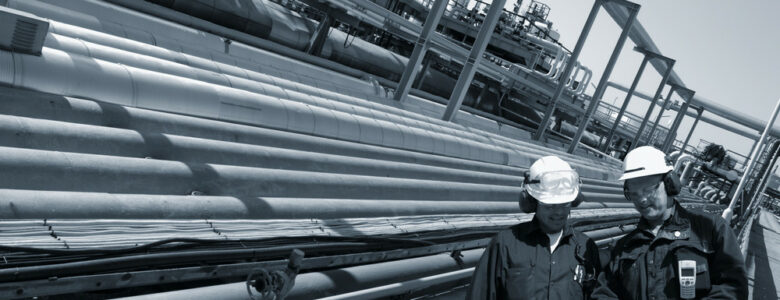Corrosion is a deterioration of a material caused by environmental interactions. It is a natural phenomenon and requires three conditions: moisture, a metallic surface, and an oxidizing agent known as an electron acceptor. Even minor corrosion requires repairs and maintenance. According to ASM International.org, metal corrosion costs the U.S. economy nearly $300 billion every year. Here are some corrosion protection methods to utilize.
Protective Coatings
When it comes to protective coatings to prevent erosion. There are paint coatings and powder coatings. Paint coatings act as a barrier to prevent the transfer of electrochemical charges from the corrosive solution to the metal underneath. A dry covering is when a dry powder is applied to the clean metal surface and then the metal is then heated which fuses the powder into a smooth unbroken film. The biggest drawback with coatings is that they often need to be stripped and reapplied. Coatings that aren’t applied properly can quickly fail and lead to increased levels of corrosion.
Adding Outside Protection
If you don’t want to go through galvanizing your pipes, you can also add exterior hardware to insulate and protect your pipes. One of the most cost-effective insulation pieces for pipes is pipe shoes. Pipe shoes are placed around a pipe at various places. They elevate the pipe and insulate them from other surfaces. Additionally, wear pads, also known as pipe pads, are pipe support pieces that help hold pipes apart, reducing metal-on-metal damage and potential corrosion. Pipe pads are made of a composite material that fits over the outside of a pipe. The pad then acts as the main contact point that the pipe rests on. Wear pads are designed to help stop exterior pipe corrosion, extend the life of piping systems, and drive overall long-term performance.
Protect Your Pipes from the Elements
External elements can significantly damage your plumbing parts. Watch out for exposure to harsh conditions that rapidly change the temperature or add too much moisture. Most materials expand and contract when they are heated and cooled simultaneously. Sometimes this stress might not be enough to destroy the structural integrity of a pipe, but when these forces are combined with others, they can have a significant impact on the structure of the pipe.
If you are looking for ways to prevent exterior corrosion on your pipes, give us a call today. We offer strong solutions and would be happy to help with corrosion protection methods.



Leave a Reply